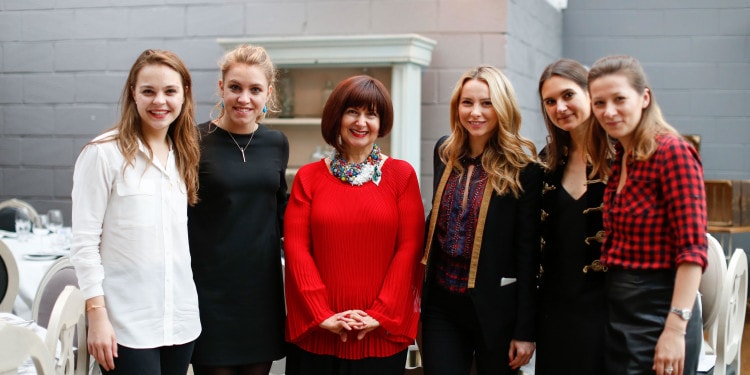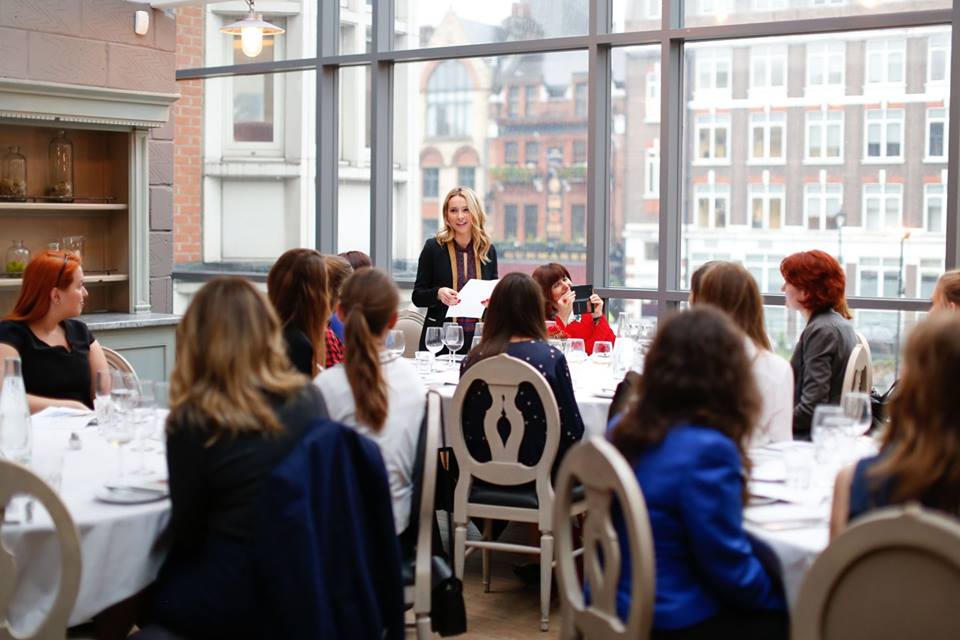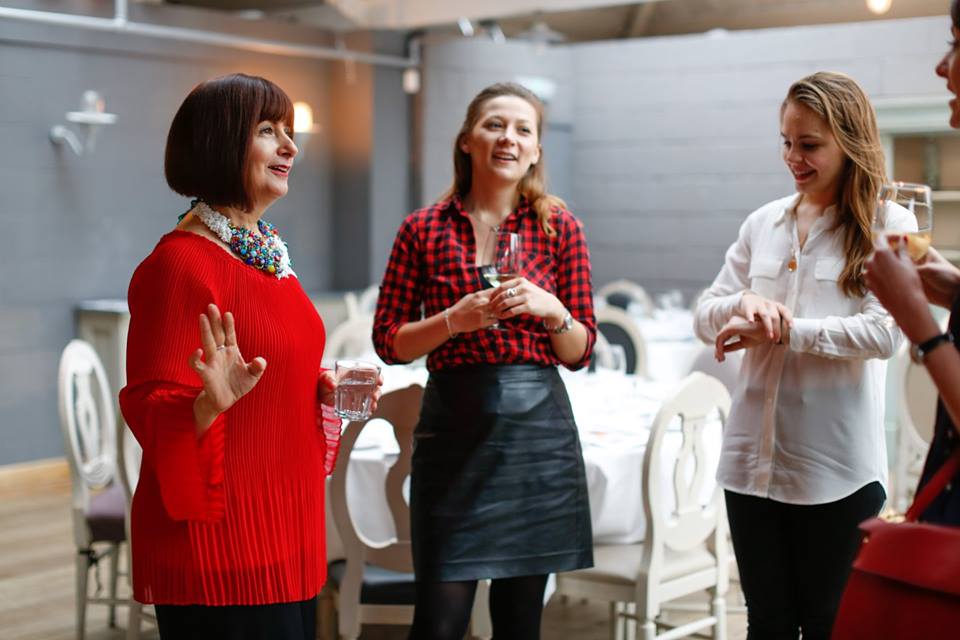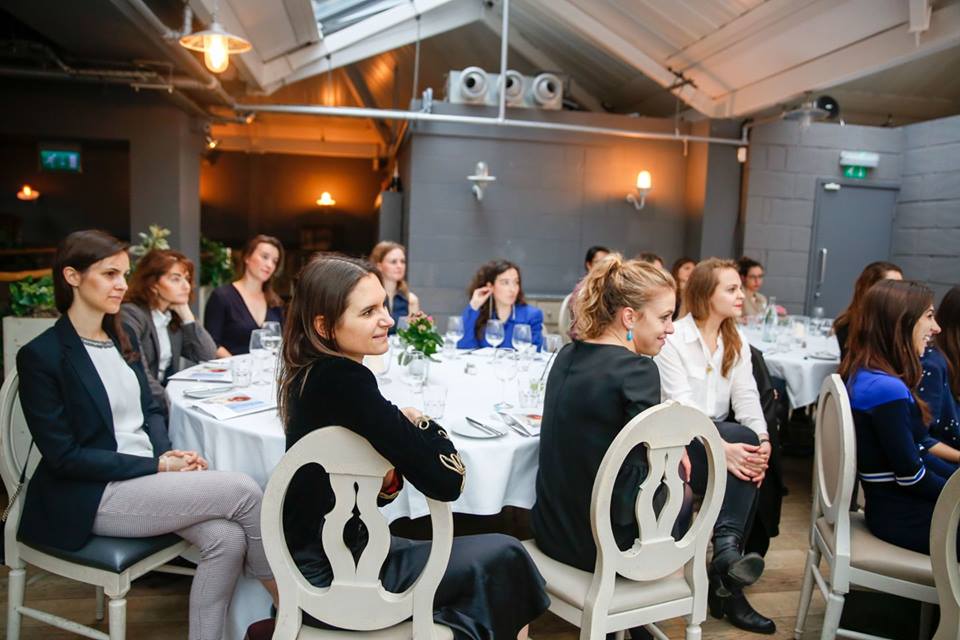Simona Miculescu is a remarkable woman. The first woman to reach the rank of ambassador for Romania, she is currently serving as Representative of the UN Secretary-General and Head of the UN office in Belgrade. Between 2008 and 2015 she was the Romanian ambassador to the UN, and between 2000 and 2004 she served as a foreign policy advisor to the Romanian ambassador. She was also a founding member and lead singer of the band UNRocks! Her academic career includes a PhD in Literature, and she has been a professor of International Public Relations at two Romanian universities. She is also considered an expert in International Public Relations.
I had the opportunity to speak to her at an Eyedea event. These are events where professional women between twenty and thirty can meet to hear speeches by powerful women, to network and socialise.
The idea is that a warm, social meeting in a business setting can be much more helpful than a cold, introductory email. Previous speakers included Jo Malone and Alexandra Shulman. The Eyedea team also runs weekly mentoring sessions at underprivileged schools, and charity events. The format this evening mixed both approaches and we heard a magnificent speech by Simona, which ended with her reading the Maya Angelou poem ‘Phenomenal Woman’, followed by dinner and a final opportunity to speak to her.
When I arrived, Simona was dressed dramatically: a flowing bright red shirt, and a multicoloured statement necklace. As she discussed her love of drama and the performing arts, it became clear that she had dressed herself to reflect her personality. She later told me that she tries to support and represent Romanian art and crafts on the world stage whenever she can, and the beautiful beaded necklace had been made by a friend of hers.
I came expecting diplomatic, opaque answers, but was moved by her power and openness. She was incredibly warm to all the attendees, and while dazzling us all with her stories of world leaders, was still generous with her attention. Here are the highlights of our talk, she answered all my questions, even the more difficult ones, with complete candour, a rare trait.
What advice would you give to young women entering male dominated fields?
My main advice would be for them to be fearless. Young ladies these days have so many skills, so many qualities. Nothing should stop them from fulfilling all their dreams. I think that the main problem for young ladies these days is self-confidence. I will never have enough of encouraging you to believe much more in yourselves. Because you have everything you need. You just need to be fearless. You just need to get out there. You just need to be aware of your value. Which doesn’t happen very often. I thought that the younger generation was much less inhibited than my generation, that they were more confident in what they can achieve. But I see a lot of discouraged young people. The majority of my followers are young people, and I see that they need constant encouragement. And that’s what I’m here for.
Great victories come only with great sacrifices
Theodore Roosevelt
So why do you think so many of your followers are so young?
For many decades I’ve been championing the cause of youth. Maybe that comes from my background, first of all as a mother, but also as a teacher. When I became a diplomat, one of my main areas of interest was youth issues, and women’s issues. Especially during the seven years that I served in New York, as Romanian ambassador to the United Nations, I tried to champion all the causes pertaining to youth. I’m still the honorary chair of one of the biggest youth events at the UN, the Youth Assembly. So I think that the young generation feels that I love them very much, and I’m very devoted and very loyal to their cause. And nothing will stop me, and I will never get exhausted of doing this. Because I really think that it’s the most noble cause that you can pursue. The younger generation is not only the future, but the present.
So you are able to commune with the young because you went through the same self-doubts when you were young?
Absolutely. If you want me to tell you the truth, I wanted to be an actress initially. But in communist Romania, that was impossible, because there were only seven slots at the Dramatic Arts Academy, and your social origin counted more than your talent. I was the daughter of a middle class intellectual family, not from the working class. So my background didn’t serve my aspirations. My parents convinced me I should give up. But I think that this love for arts, and also the talent, helped me succeed in my diplomatic career. I was spokesperson for the Foreign Ministry in pretty important and rough times for Romania, in the nineties. My dramatic skills helped me look confident in front of the press. Even if it was a delicate issue, maybe I didn’t have enough knowledge or information, but the fact I exhaled confidence worked very well on the audience. And that was due to my dramatic skills. Because if you saw my knees on the podium, you would have known the real situation. But from the waist up, I would be the most confident diplomat possible. You know, Shakespeare didn’t say by chance: “The world is a stage, and we are all actors on it”. It is so true. So sometimes I say “I didn’t make a career on the theater stage, but I made a career on the world stage. So I’m still an actress.”
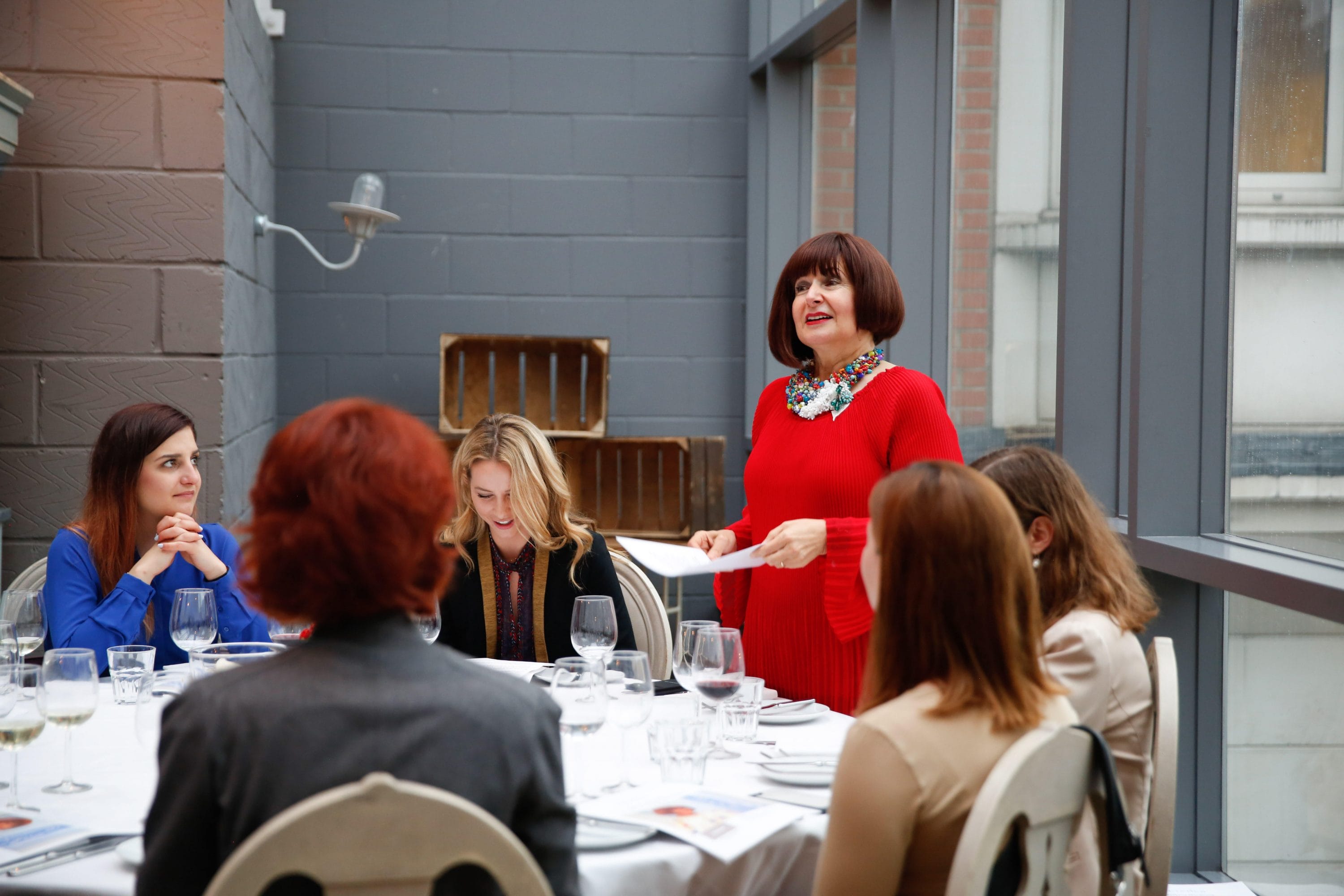
Considering how high profile and international your career is, how have you balanced that with being a wife and mother?
Thank God I managed to balance it somehow! I am the proud mother of two beautifully accomplished adult children, and I’m still a wife, even if my husband had to be very patient with my career that carried me all over the world. Our entire life is a pursuit of balance. I think that balance is the key word, beyond happiness, love, prosperity. Balance is actually at the background of absolutely everything. It was not easy, sometimes it’s like a scale. You put more here for the personal life, and it’s a little bit unbalanced. When my kids were small, I needed to stop a little bit, and provide them with a good foundation for their lives. And then, I prioritised professional life. So, all my life I tried to keep this balance. It comes with a lot of personal sacrifice though. If you want to accomplish something, it’s impossible to accomplish without sacrifice. They say that: “Great victories come only with great sacrifices”. So we have to be aware of that. There is no ideal situation. But it involves persistence, tenacity, believing in yourself, believing in your family, and devoting all your energy and love to them, and all your energy to your career.
What is your view on the way feminism has changed over the past few decades, and do you think it’s moving in the right direction?
Well I think it changed a lot, because unfortunately the aggressiveness of certain feminist organisations made feminism get pejorative connotations. A lot of people confuse it with rejecting men. The biggest change in recent years is the HeForShe campaign, organised by UN Women. It’s a campaign to involve men in empowering women and in promoting gender equality. That changed the face of feminism. It’s a more inclusive kind of feminism. I think that involving men in feminist issues is key to everything. So, I think that this is the biggest and most important change, and it brought more substance to the movement, and to the concept.
I noticed you were the lead singer in the band UNRocks. What role does music play in your life?
Music is the love of my life. Music actually saved me from very tough times. Music beautifully complemented my professional performance, and it brought it to unique peaks. And music gave me, after family, the greatest joys in my life.
Song title: Strong UN, Better World from Friendship Ambassadors
What role do you think culture can play in promoting social good?
Well, I think that culture will forever be one of the best instruments for promoting absolutely any goal: social, political, diplomatic. Arts and culture are the essence of humanity, and you cannot succeed in anything if you do not bring a touch of humanity. What else serves better than arts and culture, in all its facets? So I’m a passionate champion of culture. I’m aware of how much culture gave me, and what a fantastic tool it is in our daily work. Especially in a world that is so multicultural. And I think that multiculturalism is actually one of the big characteristics of the world today. Look at London. It’s all about multiculturalism and diversity. So I think that culture connects the dots.
Do you think it is effective for more liberal countries to send gay ambassadors to countries where social attitudes and legal protections might be against them? So for example, openly lesbian Judith Gough was sent as the UK ambassador to the Ukraine. What do you think about that? Do you think that’s a useful way of changing perceptions?
Absolutely. We have to use everything possible to change misperceptions. I will give you an even more personal example: while I was foreign policy advisor to the president of Romania, the ambassador of the United States to Romania was a gay person. Michael Guest was an absolutely amazing ambassador from the United States. There was not much fuss about him being gay in the Romanian media. To put this in perspective, we are still a traditional society. These sensitive issues are still more sensitive there than in the West. But the biggest fuss was made by the American media. The Romanian media found out Michael Guest was gay from the American media. What I think is essential when you send a gay ambassador to a country like Romania or Ukraine, is not to send a gay activist. I think that being gay, and doing your job, is the right way to do it. You don’t have to push. Through your own example, through your professionalism, you can convince people to accept gay people. Just do your job, and it will come. This is the way I think these issues should be dealt with. And Michael was very much loved, and when he left he was regretted by the entire Romanian society. Strangely enough, when he came back to the US, he resigned from the State Department. So it was not a problem with Romania, he had a problem with misperceptions in his own country.
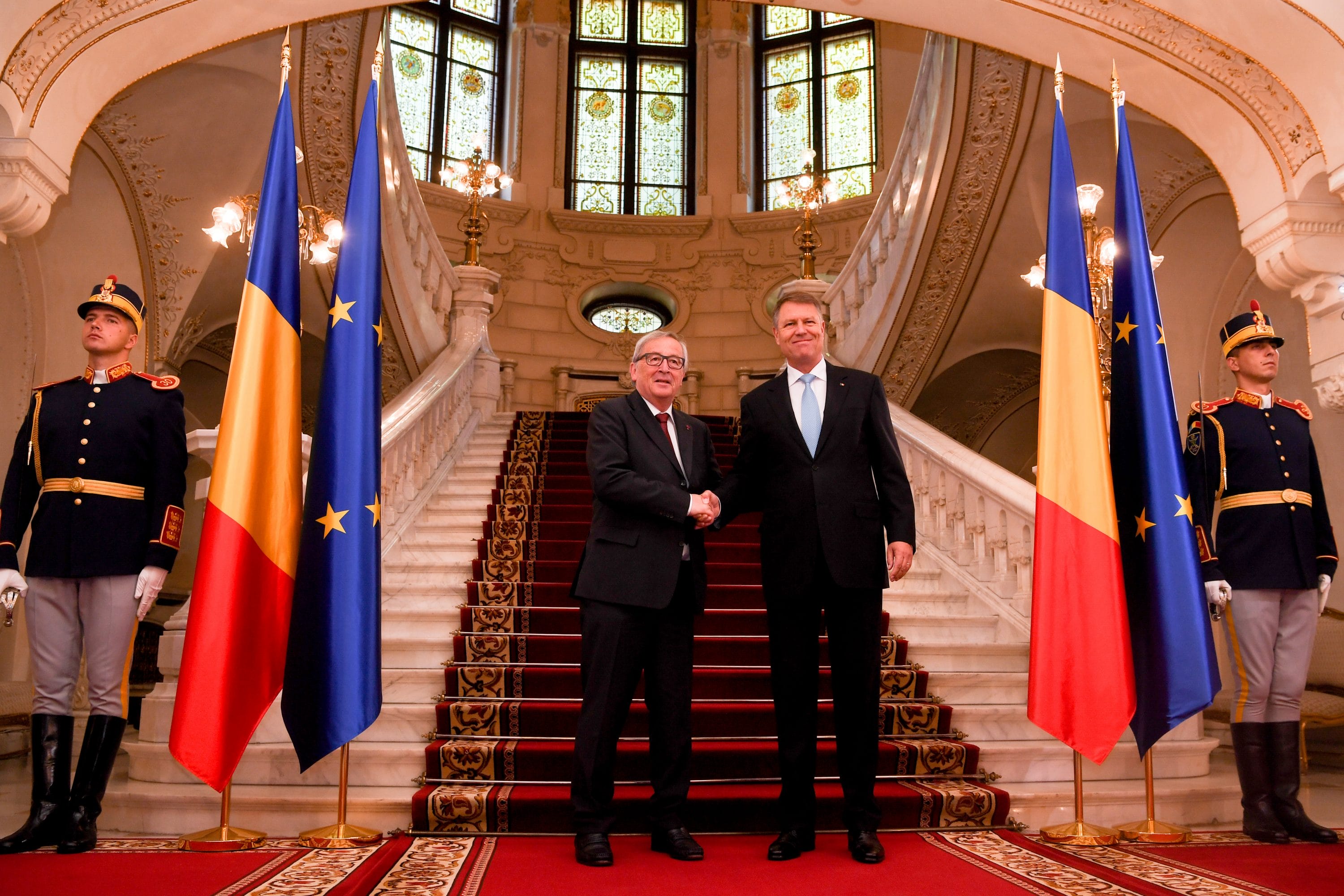
Romania joined the EU about ten years ago now. How do you think that’s changed the way Romania sees itself?
Well, the European Union accession came with a lot of advantages. But also some new effects. I think that Romanians became more confident, because they saw that they were up to requirements of European Union. The West finally recognised Romania as being part of it. We speak a Romance language, which to us means that we belong to Western civilisation. So joining the EU meant being recognised as part of Western civilisation. I think it was a great opportunity for Romania, and Romanians took advantage of this opportunity. You cannot imagine how big the change is between Romania ten years ago, and Romania today. Unfortunately, there were also some negative effects. With the freedom of movement, millions of Romanians went abroad to work. 99% of those Romanians are shining wherever they work. But less than 1% are also criminals, beggars, you know all these petty thieves that annoy people. So unfortunately this was a hit for Romania’s image abroad. Because the media, especially in Italy, exploited this, in order to forget about the other problems that Italians have. And I think that Romanians didn’t act enough to counter all these effects. So that was unfortunately something that stigmatised the perception of Romanians. And, there is one more thing: the gypsies, according to the Council of Europe, are called Roma. So a lot of ignorant people – unfortunately ignorant people are the majority of people all over the world – made the confusion between Roma and Romanians. They think that all Romanians are Roma, so they are beggars. And of course some who don’t want Romania to shine take advantage of this cliché. So the issue is very complex. But for me, the most important thing is that the progress of Romania is obvious. Romania has the biggest economic growth in the European Union right now. I mean facts tell a lot about the progress that was generated mostly by the accession to the European Union, and by the opportunities that we honoured actually. Because we have worked hard not only to get there, but to maintain a good level of political and economic circumstance.
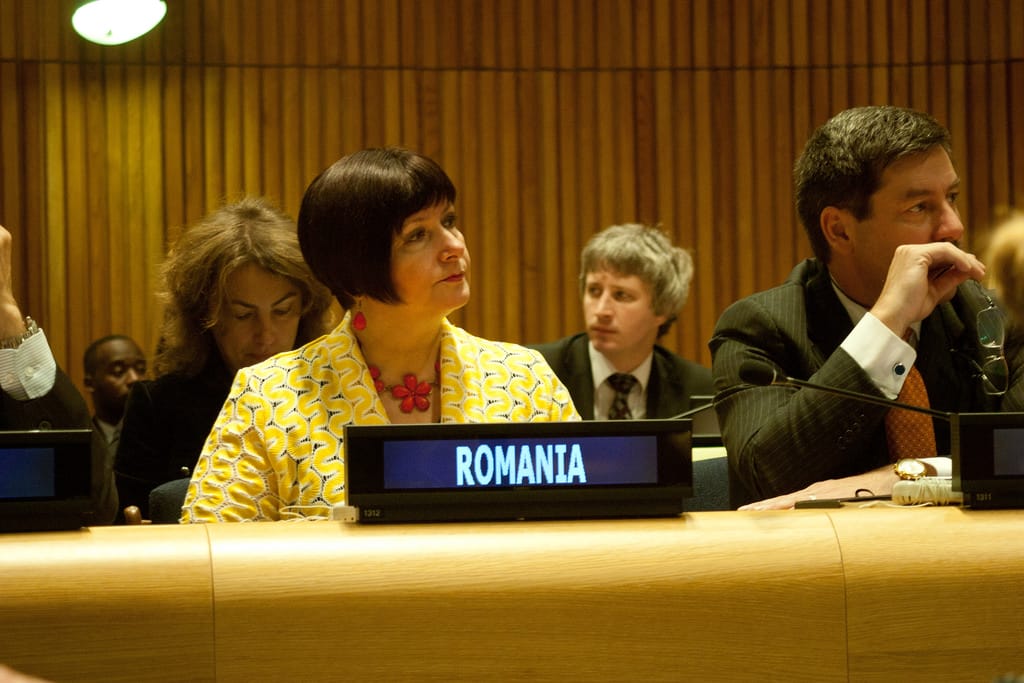
You said Romania didn’t counter negative perceptions as effectively as they could have. How do you think Romania should counter these perceptions? Do you think this is still an issue now?
Oh yes. I’m a specialist in public communication and PR, so you can imagine, when I was a Romanian diplomat, I did everything possible in order to counter these perceptions. You need an integrated vision at the highest level of Romania, and we lacked that. I still think that we are shy in promoting Romania. Thank God that there is a younger generation of creatives, who did more than many governments that led Romania since the Romanian revolution. So I am much more hopeful. Even two days ago, there was an exceptional event organised by some young creatives in Bucharest. It’s called Experience Romania, and it was actually a summit of a lot of travel bloggers from all over the world. And it was a hit! The coverage on social media of this event, and the opportunities that they offered to the bloggers of seeing and experiencing Romania, was fantastic. So I think that the younger generation, the creative sector, can help much more in promoting Romania than the governmental sector, who are less creative at that.
Heart and reason
Antonio Guterres
Do you have any final thoughts you’d like to leave us with?
By way of quotes, I would also like to share with you a motto. The new Secretary-General of the United Nations, Antonio Guterres, had a slogan when he was campaigning as a politician in Portugal. His slogan was: “Heart and reason”. And I think that it’s a great slogan, and I think that it should govern the life of everybody. In that order. Not “reason and heart”, “heart and reason”. I believe in heart. I’m very proud of being emotional. And I really think that when emotions are positive, nothing works better. And now, as UN Secretary General, I see two words in every speech of his: “passion and compassion”. Those are the four key words that I want to leave you with today.
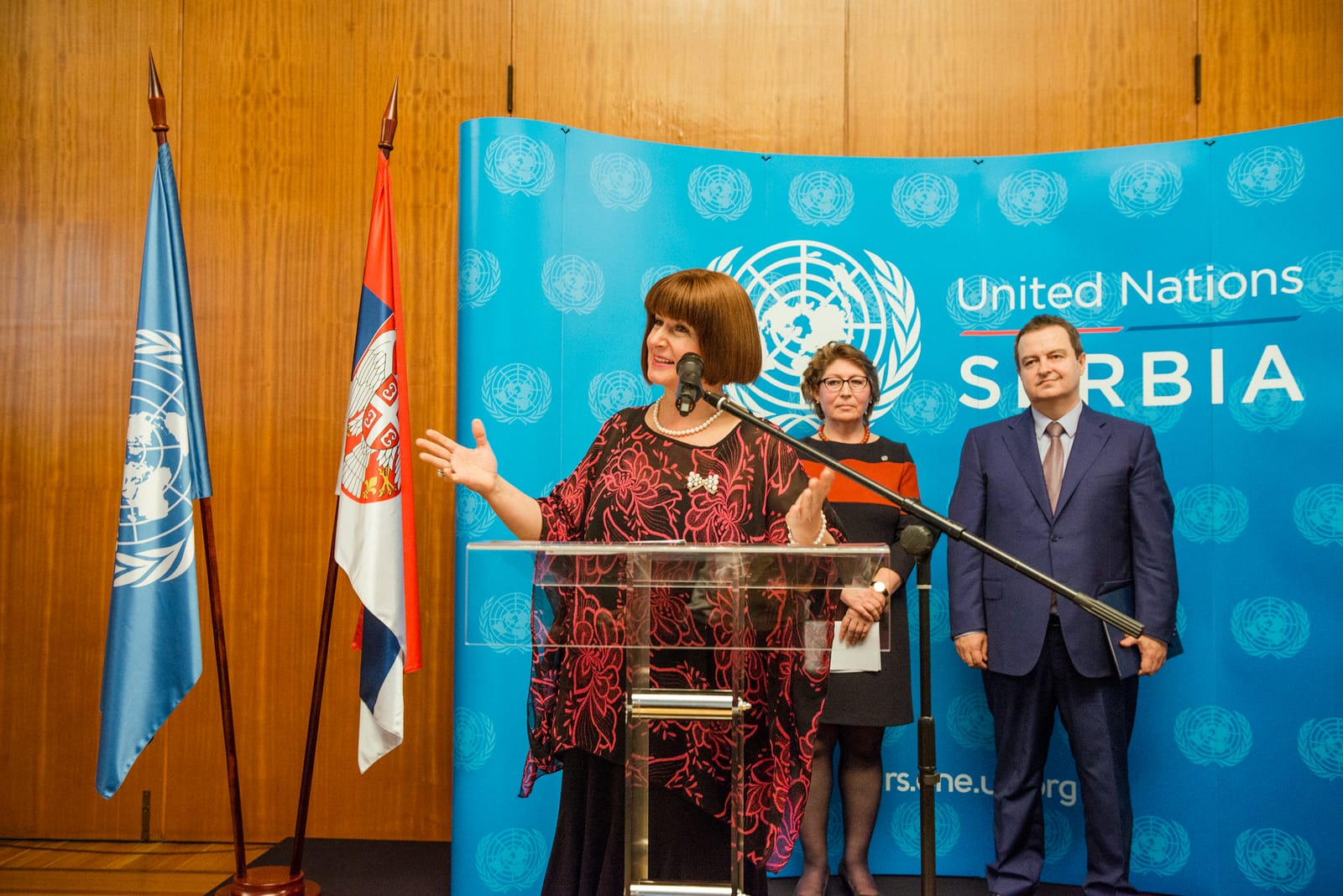
Simona-Mirela Miculescu has been serving as Representative of the UN Secretary-General and Head of the UN Office in Belgrade since July 2015. Prior to this, she was the Ambassador Extraordinary and Plenipotentiary, Permanent Representative of Romania to the United Nations, between 2008 and 2015. During her term in New York, she held several positions including: Vice-President of the UNICEF Executive Board, Vice-President of the Assembly of States Parties to the Rome Statute of the International Criminal Court, Vice-President of the Bureau of the Francophonie, Chair of the Special Political and Decolonization Committee of the General Assembly during its 66 th Session, Vice-President of the UN General Assembly for its 68 th Session, and Chair of the 53rd Session of the UN Commission for Social Development.


